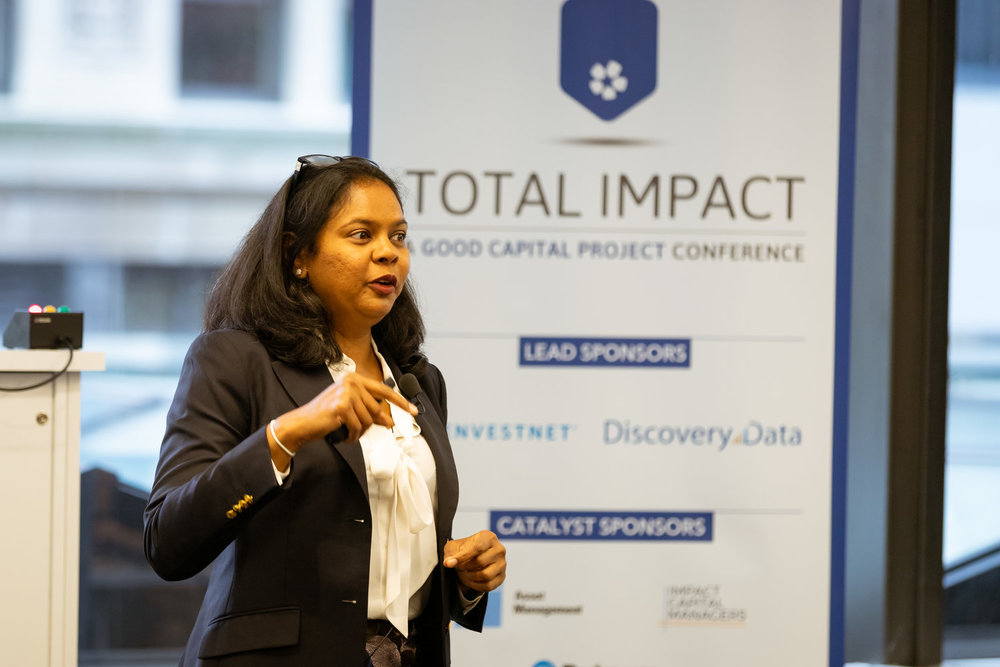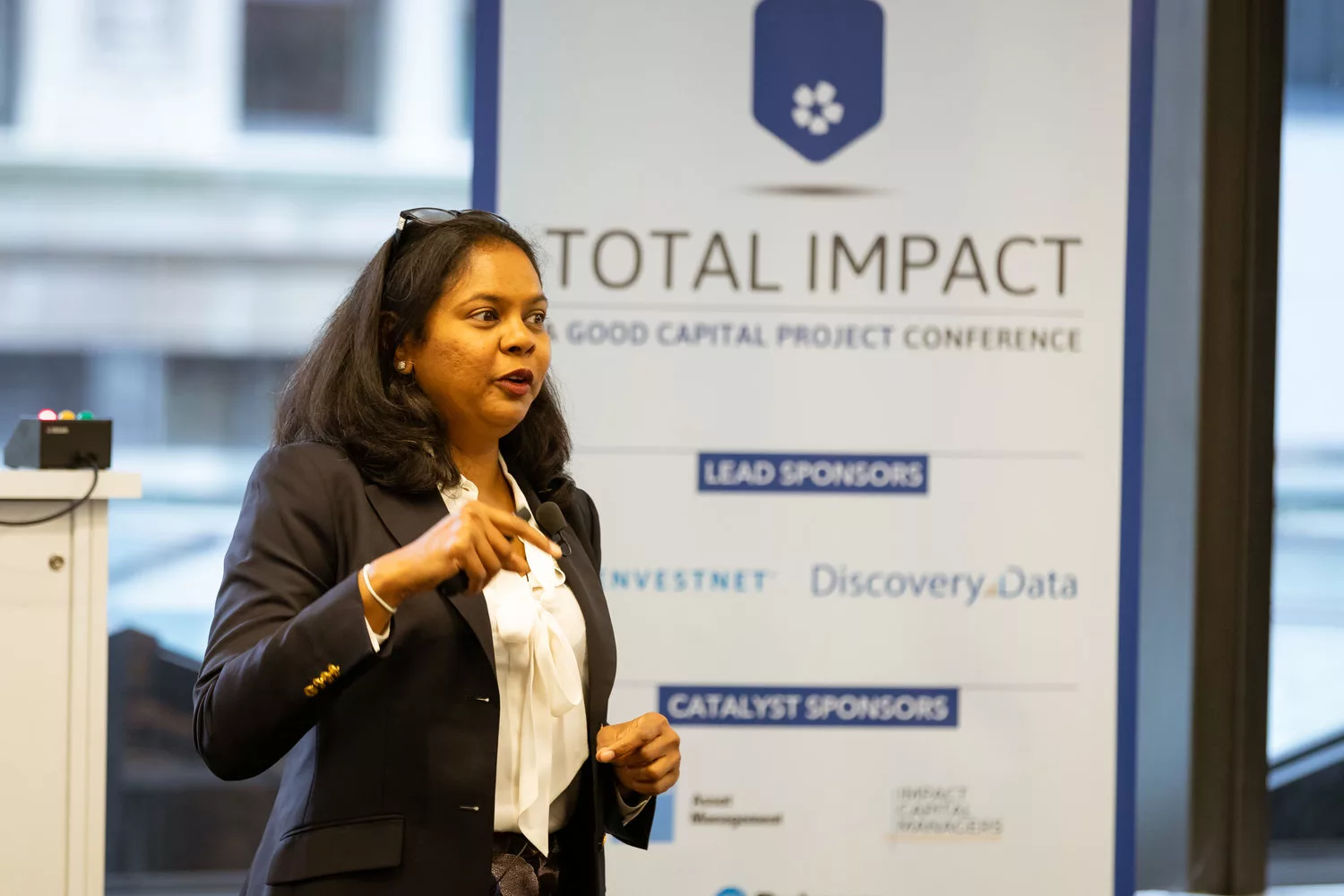
On the first day of Total Impact Boston, panelists focused on ESG and impact investing strategies across asset classes. The day started with a powerful statement from Ian Simmons quoting his co-founder and wife, Liesel Pritzker Simmons, “We don’t invest in products and companies that, when used properly, kill people.”
Central themes that emerged from the day’s conversations were – investing with higher standards, tracking measurable data in impact, intersecting innovative social metrics with traditional financial models, leveraging public engagement to create systemic change, and the resounding consensus that, “Women and millennials are the new sheriffs in town”.
What we heard:
“It’s important to look under the hood of your investments. Figure out where your money is going and what it’s being used for. We need to be responsible and smart investors, which means making sure companies are aligned with impact” – Ian Simmons, Co-Founder and Principal, Blue Haven Initiative
“We don’t think there needs to be an intrinsic tradeoff between impact performance and financial performance. We are looking at what is driving alpha and investment performance form an impact standpoint” – Martin Whittaker, CEO, JUST Capital
“You have to use impact metrics alongside baseline financial metrics to have a tangible impact. All issues are critical for individuals and corporations, but that’s not the only measure we can have because not all issues are financially material for companies” – Mamadou Sarr, Senior VP – Director of Product Development and Sustainable Investing, Northern Trust
“Impact Investing is about taking clients on a journey to align their investments with their values and what they believe. Clients can use their investment portfolio and resources to leverage positive impact on the world” – William Tickle, Senior Investment Advisor and Director of Impact Investing, Ballentine Partners
“People focus on where the money flows and it’s different players, but at the core of social impact bonds is the impact we want to achieve in the community. Impact drives everything from partnerships to evaluation methodologies.” – Tracy Palandjian, Co-Founder and Chief Executive Officer, Social Finance





